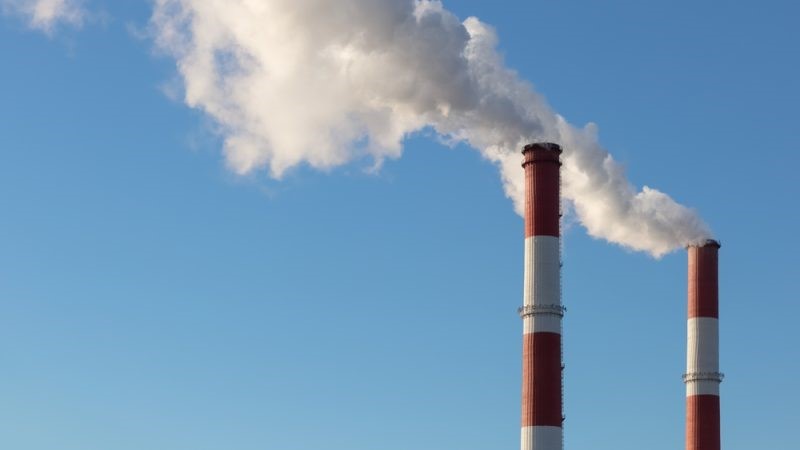您想继续阅读英文文章还
是切换到中文?
是切换到中文?

THINK ALUMINIUM THINK AL CIRCLE

The European Union plans to implement the Carbon Border Adjustment Mechanism (CBAM) starting January 1, 2026, a carbon tax on specific imported goods, prompting varied perspectives from across the globe, including India.

The United Nations 28th Conference of Parties (COP28) in Dubai has discussed the European Union's Carbon Border Adjustment Mechanism (CBAM), a carbon tax on imports of carbon-intensive sectors, including aluminium. Despite the Indian government labelling it as "unfair" and seeking intervention from the World Trade Organization (WTO), industry leaders are expressing a more pragmatic stance at the climate conference.
Seema Arora, Deputy Director General at the Confederation of Indian Industry (CII), recognised the need for a proactive approach, dismissing the idea of challenging CBAM through the WTO and highlighting that the same rules apply to all companies. Instead, she advocates for a strategy that involves collecting the tax within India and utilising the funds for domestic decarbonisation efforts, including support for micro, small, and medium enterprises (MSMEs).
She pointed out, "I don’t think there is any point in saying we can’t accept it because it is not non-discriminatory. They are saying the same rule applies to our companies also. So you can’t fight it in the WTO, although I know they are going to fight, which is okay. But I don’t think much result will come out of that."
While Arora's approach aligns with the government's considerations, Tata Steel proposes an alternative solution. Tata Steel's Vice President of Safety, Health, and Sustainability, Rajiv Mangal, emphasised the positive aspects of CBAM, stating that it forces the market to acknowledge and pay the actual cost of emissions.
Mangal suggests adopting policies similar to the United States' Inflation Reduction Act (IRA), which provides subsidies for environmentally friendly practices. Drawing a parallel, he highlights the effectiveness of such incentives in the U.S., making it the largest consumer of hydrogen and carbon capture and use.
He commented, "CBAM is good because it will force the market to pay the price. So I would go to the extent that something similar should come up in most of the countries."
He argued that with economic incentives or penalties, there is more motivation for steel manufacturers to invest in emission reduction, which is often a high-cost endeavour.
The discussion extends to the controversial method of Carbon Capture, Use, and Storage (CCUS), which some fossil fuel-producing entities endorse. However, recent analyses presented during COP28 indicate that these technologies are costly and may not significantly reduce emissions as required to meet global warming targets. Despite industry interest in CCUS, the International Energy Agency chief cautions against relying on it as a large-scale solution, calling it an "illusion."
Mangal proposes that India establish a baseline carbon standard, incentivising emissions below the threshold and penalising those exceeding it. This approach would prevent India from being flooded with high-carbon imports driven solely by the lowest price.
Arora, adopting a broader perspective on the carbon tax, encourages a creative response to CBAM. She suggests building domestic reporting mechanisms, allowing companies to share data with the Indian government rather than the European Union. Furthermore, she proposes implementing levies within the country, tailored to varying company sizes and technologies, to counteract CBAM.
India, accounting for 26.6 per cent of exports to the EU, particularly in aluminium, iron ore pellets, iron and steel, stands to be significantly impacted by this tax.
On December 7, Finance Minister Nirmala Sitharaman asserted that any attempt by developed countries to impose a cross-border adjustment tax to fulfil their environmental obligations is morally unjust and contradicts the interests of developing countries in the 'Global South.'
"Cross-border imposition (of tax) and that money going towards somebody else's green agenda, if anything, is not moral at all," Sitharaman said at the CII Global Economic Policy Forum.
Commerce and Industry Minister Piyush Goyal echoed Sitharaman's thoughts and added, "Bharat will address the problem of CBAM with confidence, and we will find solutions. We will see how we can convert CBAM to our advantage if it comes in."
The diverse opinions within the Indian industry highlight the complexity of addressing CBAM. Industry representatives stressed the importance of government-led policy support and strategic initiatives to navigate the challenges posed by carbon taxes on a global scale. As COP28 progresses, finding common ground among stakeholders remains a key challenge for effective and sustainable climate action.
Responses








